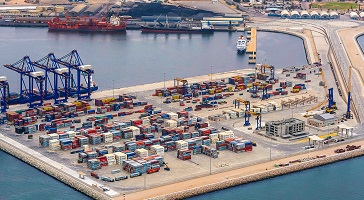
Alan Gray on Africa investing: Debunking investment myths

For those who seek geographical and currency diversification, have a long-term investment horizon and are not averse to risk, investing across Africa presents a range of compelling opportunities in the long term. For patient investors, Africa’s investment potential is undiminished despite the recent stumbling blocks, including lower oil and commodity prices, uncertain global conditions and domestic political uncertainty.
“Our long-term bottom-up analysis of value suggests that opportunities exist in frontier markets, where investors switch between extremes. Nigeria, for example, long the African investor’s darling, has now fallen out of favour with investors, but we see value in the country’s financial sector,” said Nick Ndiritu, Allan Gray portfolio manager.
Ndiritu tackles some of the misconceptions about investing on the continent saying the notion that volatility is the enemy, is a myth. According to him, highs and lows come with the territory when investing across Africa.
“One of the great benefits of investing across the African continent is volatility, as it means outcomes are less certain than in more developed markets.
“Volatility can result in dislocations between fair value of companies and the prices they trade at. The uncertainty in markets may cause investors to shun a country, giving the calm, patient investor the chance to buy cheap assets,” he said adding that price volatility resulting from short-term news, political events or economic cycles can create opportunities to buy companies for less than they are worth.
Safety in numbers, is his second myth. According to Ndiritu, most investors across Africa are biased towards the more liquid stocks with larger market capitalisations. This often results in the highly liquid stocks trading at a premium to less actively traded companies.
Further to this, the less liquid stocks tend to be under-researched, which increases the likelihood of uncovering very compelling investments. “Instead of chasing liquidity, investors should focus on analysing businesses and the industries in which they operate, to build a clear picture of the business value,” he said.
The most pervasive myth, he said is that Africa is seen as homogenous. While Africa has numerous challenges, including illiquid markets, lack of credit ratings for debt instruments and an ever-changing regulatory environment, it is not the same in every country.
“Many global investors view the countries on the African continent as homogenous. This leads to sweeping assumptions about trends, suggesting the different countries have similar characteristics. This is not always the case as one simply has to take a look at the unrelated political events across the continent,” he said.
His final myth is that unstable markets present problems. African equity markets can be prone to big swings in investor sentiment, but this may present an opportunity for companies who are able to weather the market storm and offer long-term potential.
He explains that despite the oil price plummet, resulting in an out-of-favour sector, the Nigerian oil company Seplat has good cash flows, a robust balance sheet and a growing gas business.
“We think the terrible sentiment and clear risks give us the opportunity to buy decent businesses, with favourable long-term prospects, at very attractive prices,” concluded Ndiritu.










































